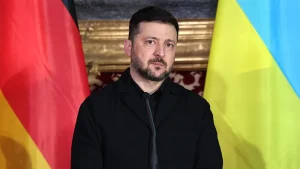Chrystia Freeland’s reassignment from her role as Minister of Foreign Affairs to Deputy Prime Minister and Minister of Intergovernmental Affairs in 2019, while appearing a promotion on the surface, carried significant political ramifications for Prime Minister Justin Trudeau and the Liberal government. Her departure from the global stage, particularly given her crucial role in navigating the tumultuous waters of the nascent Trump administration, left a void in Canada’s international relations and sparked speculation about potential power shifts within the Trudeau government. While the official narrative emphasized the need for a strong leader to address domestic challenges, particularly the growing tensions between the federal government and Alberta, the timing and nature of the move fueled speculation of internal political maneuvering, raising questions about Trudeau’s leadership and potential vulnerabilities within his governing coalition.
Freeland’s tenure as Foreign Minister was marked by her adept handling of the renegotiation of the North American Free Trade Agreement (NAFTA), a complex and politically charged process complicated by the unpredictable nature of the Trump presidency. Her ability to forge alliances with key U.S. stakeholders, including Congress members and state governors, proved pivotal in securing a revised agreement, later renamed the United States-Mexico-Canada Agreement (USMCA). This achievement elevated her profile both domestically and internationally, positioning her as a competent and effective leader. Her reassignment, therefore, was viewed by some as a strategic move to sideline a rising star within the Liberal Party, preemptively addressing a potential leadership challenge to Trudeau. Furthermore, her removal from the foreign affairs portfolio raised concerns about Canada’s ability to maintain its strategic position on the world stage, particularly in its relationship with the United States.
The complexities surrounding Freeland’s move were further exacerbated by the domestic political landscape in Canada. The burgeoning energy sector in Alberta, coupled with the province’s historical grievances with the federal government, had created a volatile political climate. The Trans Mountain pipeline expansion project, a crucial piece of infrastructure for the energy industry, became a focal point of contention, with Alberta pushing for its completion while facing opposition from environmental groups and some Indigenous communities. Trudeau’s appointment of Freeland, who is of Ukrainian descent and whose family had fled Soviet oppression, to address the Alberta situation was interpreted by some as a calculated move to leverage her personal narrative of overcoming adversity to appeal to Albertans’ sense of Western alienation. However, this strategy also carried risks, potentially exposing Freeland to political attacks and jeopardizing her reputation as a skilled negotiator and consensus builder.
The potential consequences of Freeland’s shift extended beyond the realm of domestic politics. Her absence from the international stage, particularly during a period of escalating global uncertainty, raised concerns about Canada’s ability to effectively advocate for its interests abroad. Her established relationships with key international figures, honed during her time as Foreign Minister, were invaluable assets in navigating complex geopolitical issues, and her departure created a void in Canada’s diplomatic corps. Moreover, the move signaled a shift in the Trudeau government’s priorities, from international engagement to domestic challenges, potentially impacting Canada’s standing on the global stage and its ability to influence international policy.
Beyond the immediate political implications, the reassignment of Chrystia Freeland underscored a larger trend within the Trudeau government: the centralization of power and decision-making within the Prime Minister’s Office. This concentration of authority, while potentially enabling swift action on critical issues, also raised concerns about transparency and accountability. Freeland’s move could be interpreted as part of this broader trend, consolidating power around Trudeau and potentially stifling alternative voices within the government. The potential long-term effects of this centralization of power remain to be seen, but it raises questions about the health of Canada’s democratic institutions and the potential for dissent within the governing party.
In conclusion, Chrystia Freeland’s transition from Foreign Affairs to the role of Deputy Prime Minister and Minister of Intergovernmental Affairs was a complex political maneuver with multifaceted implications. While ostensibly a promotion, the move raised questions about Trudeau’s leadership and the internal dynamics within the Liberal Party. Her departure from the global stage left a void in Canada’s international relations capacity, especially concerning the crucial relationship with the United States under the Trump administration. Domestically, her new role tasked her with navigating the turbulent waters of federal-provincial relations, particularly the increasingly strained relationship with Alberta. The overall impact of Freeland’s reassignment remains a subject of ongoing analysis and debate, but it undoubtedly represents a significant turning point in Canadian politics, highlighting the delicate balance between domestic and international priorities, and the challenges of managing power within a governing coalition.








